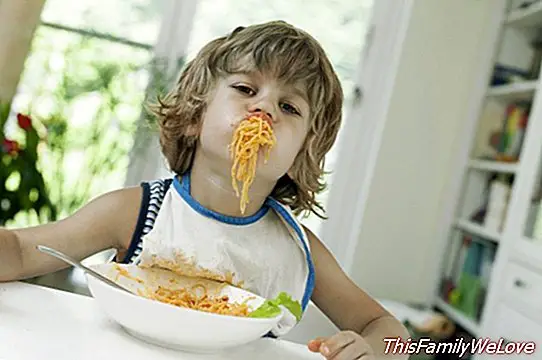Ten good manners that every child should know

Make our exemplary children More than a goal, it is an obligation that every parent must be marked since receiving the news of the next arrival of a new member to the family. For this, educating in values is something that must be done from the beginning and teach correct forms of behavior and good manners so they know how to act on all occasions.
Take time to instill these behavioral norms and teach them these manners It is the parents' task, who are responsible for the way their children behave once they are adults, since they are their first references and the first mirror where the little ones will look at each other before making a decision about how to act.
Why are good manners important?
A child who knows how to behave is first much more charming that another one that is always doing pranks and that does not let bother with its performances. In short, a well-educated child will always be better received in all areas, as opposed to someone who does not. Build a foundation where the values of good education and correct manners, will serve so that in the future there is a good basis to get the little one to become an exemplary citizen.
Ultimately, parents are the responsible to make children see that this must always be the way to act. They are born without understanding the functioning of the world, and we are their first guide to indicate the correct path. The little ones do not understand that in a certain situation they have done something wrong, if they have not been scolded previously for it. It is for this reason that you should never resort to "it will pass" or laugh the grace, from the first moment you have to try to teach good manners to the minors.
10 good manners to teach
And what do you have to teach the little ones to be smart children? Wich is the way to go? Here we recommend 10 good manners that every child should know for behave correctly both at home, and outside of it:
1- Ask "please". Both at home and outside if the child wants something and asks another person, you should know that a "please" in the sentence will help more than an imposition.
2- Say "thank you". If someone does something for them, give them a gift, serve them dessert, etc. They must know that this person always has to be told thank you for that effort, however minimal, that he has dedicated to making the child happy.
3- Know how to claim attention. There are times when a child wants to enter a conversation or wants to address a person to ask a question, this time good manners dictate that if you are a stranger should be told about you and always mediate an "excuse" or a "please, could you tell me".
4- Do not laugh at others. In some moments children can see on the street someone with a striking physical defect, and even in some of their friends or classmates. The youngest can see this feature as something funny and what to make jokes, we must tell you that this is not a joke and scold them if you hear them laugh at these defects.
5- Return courtesy. When other adults address the child and ask them how they are or tell them a compliment, the younger ones should know that they should return the courtesy and be interested in the other person's state.
6- Call the doors closed. If there is a closed door, the child should know that there may be someone else behind who has closed it. To avoid discomfort, always have to knock on the door to know if a bathroom is occupied for example, or to enter another room where you do not know if you have permission to enter.
7- Do not put motes. In relation to point 4, there are times when a characteristic of some person serves for the children to put a nickname. The child should be made to understand that this is impolite and that it could hurt the feelings of the other person and that, of course, is not funny at all.
8- Ask for forgiveness. Sometimes, with the development of the game it is possible that they unintentionally hurt other children or that they simply run into them, in these cases the little ones must know how to apologize if they were the ones responsible for this accident.
9- Always help. When someone from the family or the school requires the help of the youngest, he must always be willing to collaborate in this task that is requested.
10- Say hi. If the child crosses with an acquaintance, be it friend, relative or neighbor, the correct thing to do is to greet him with a smile in his mouth.
Damián Montero




